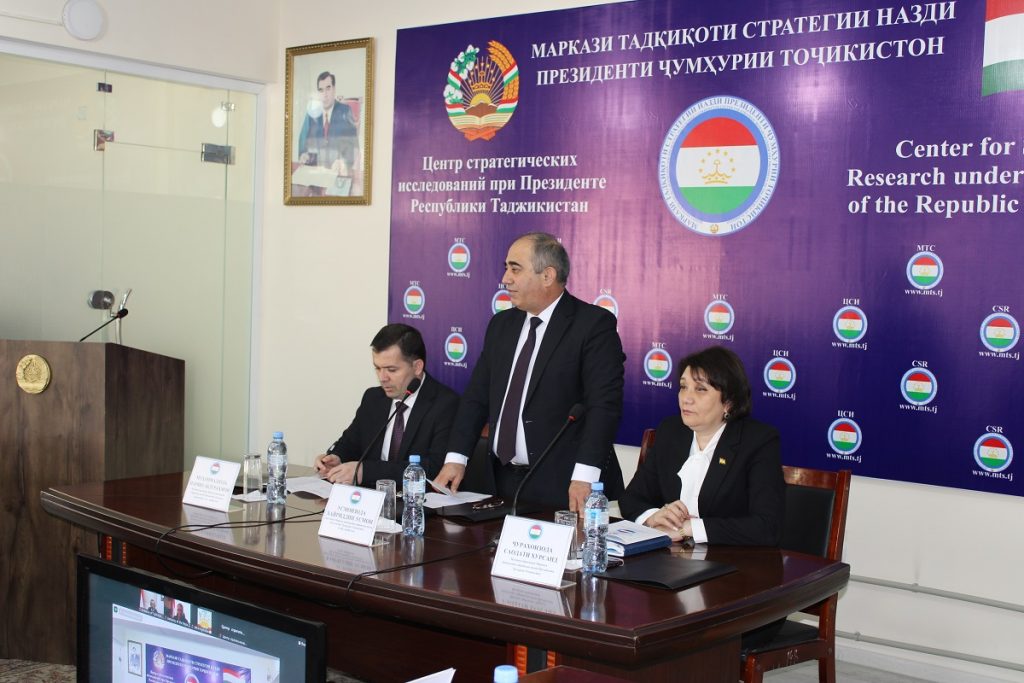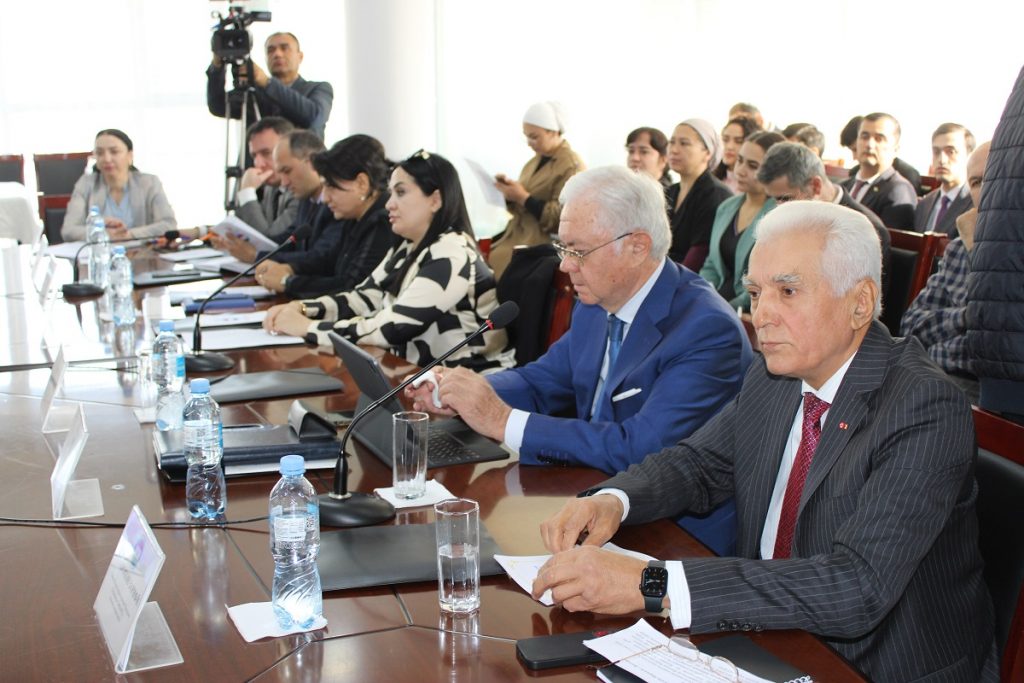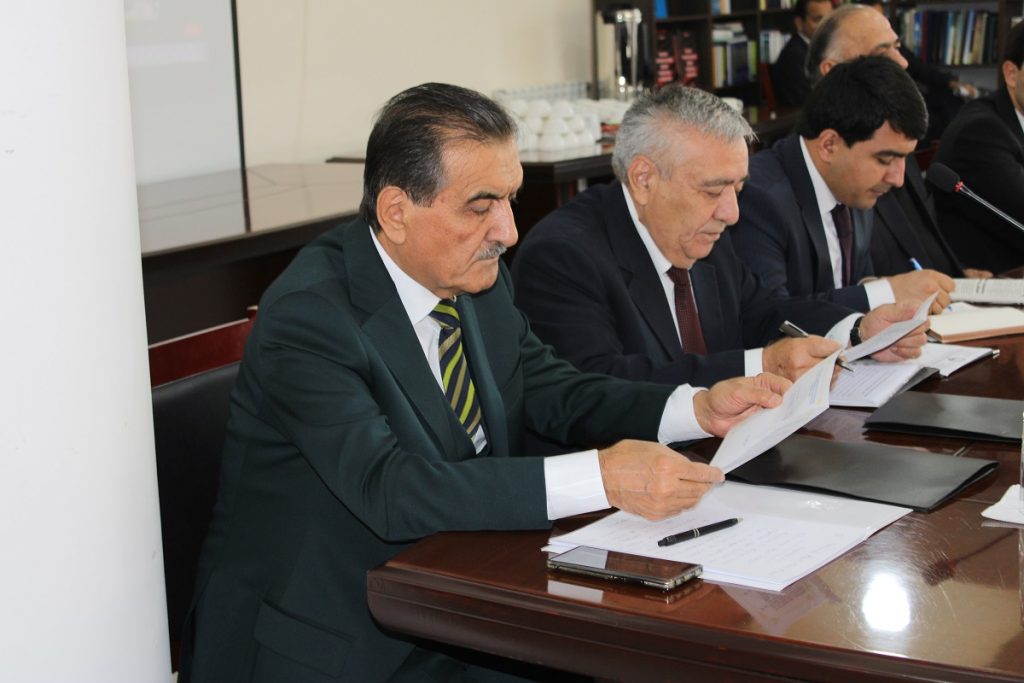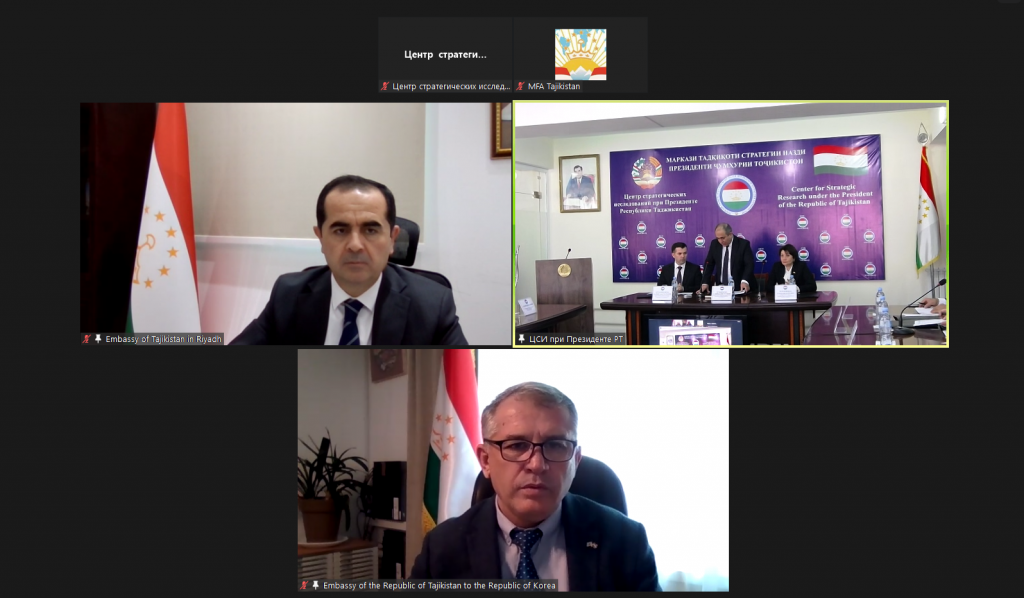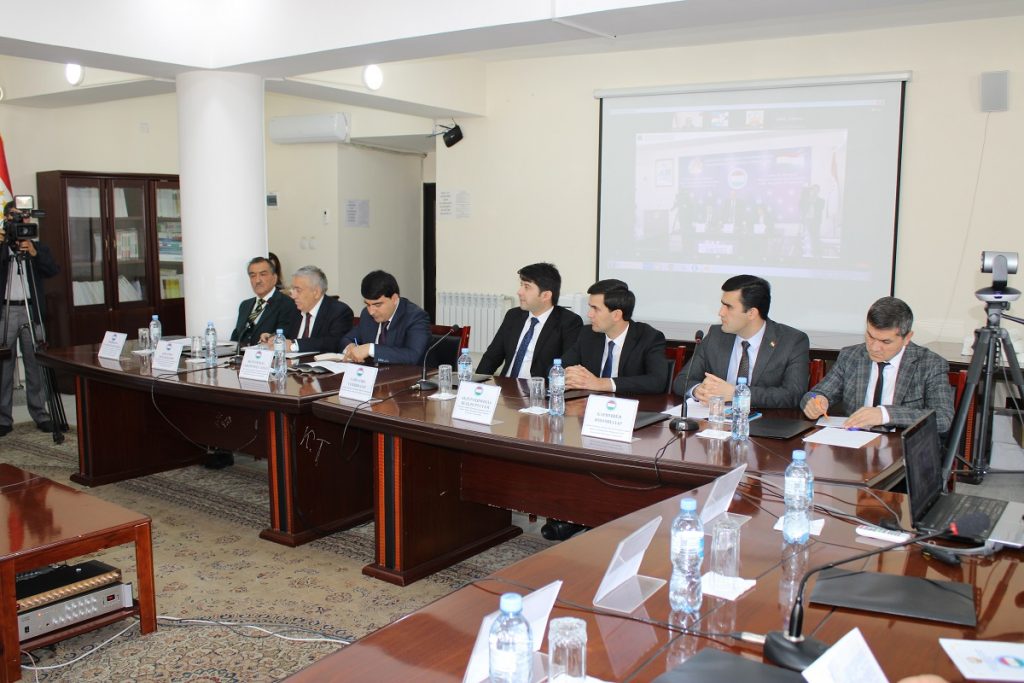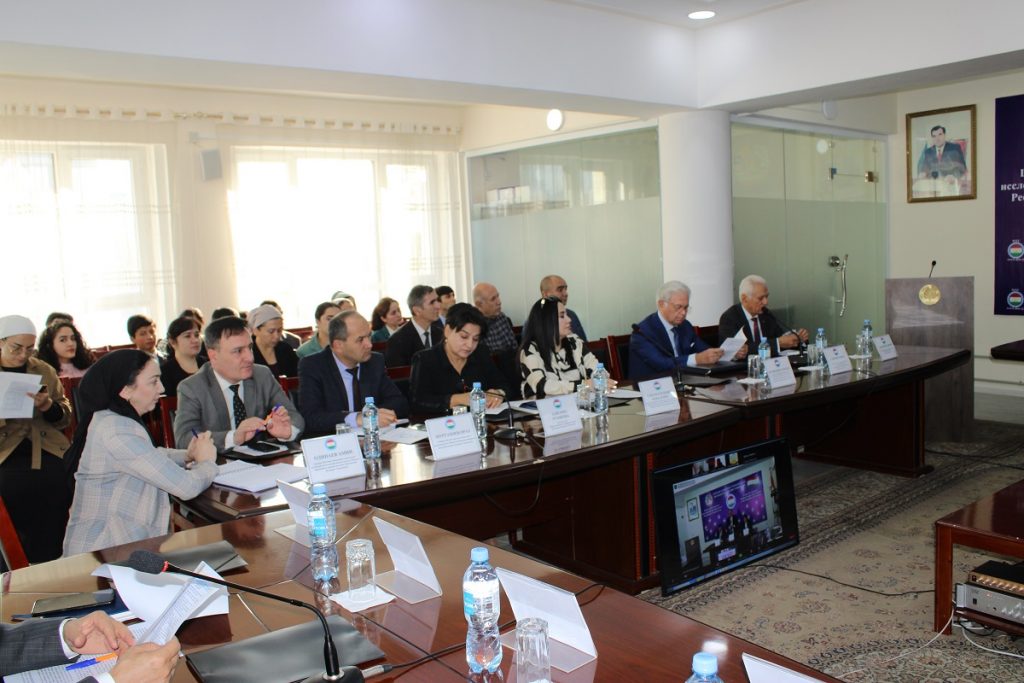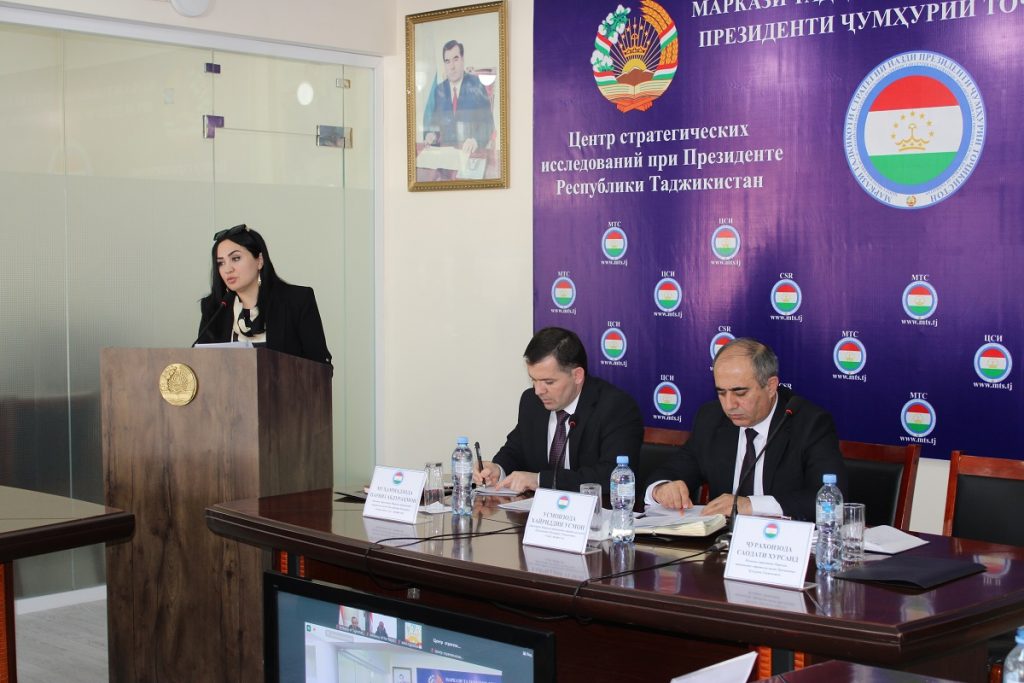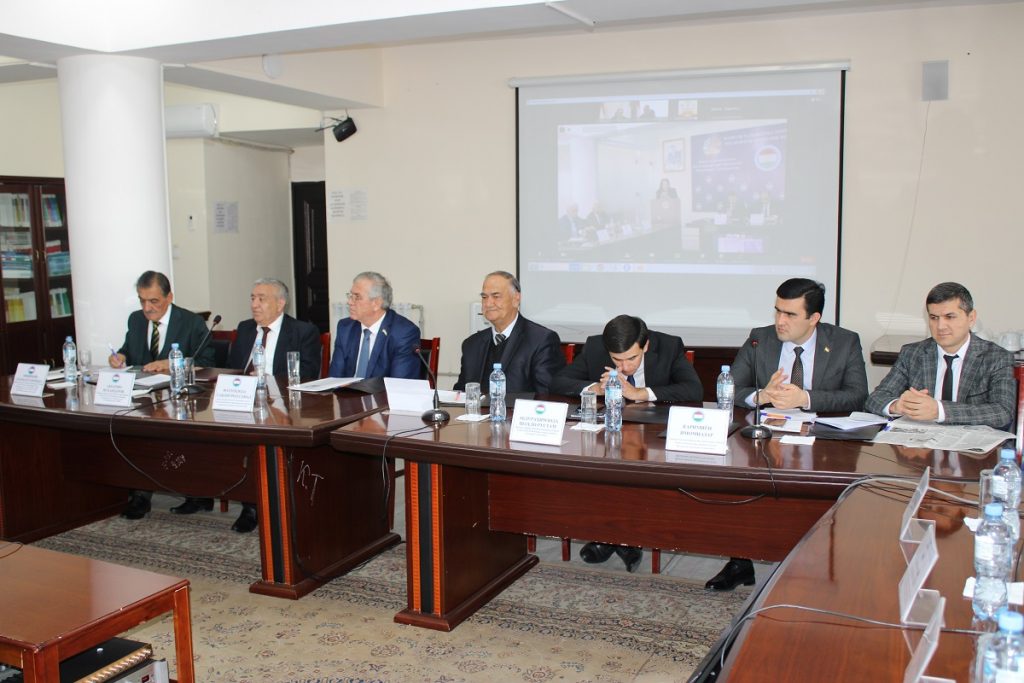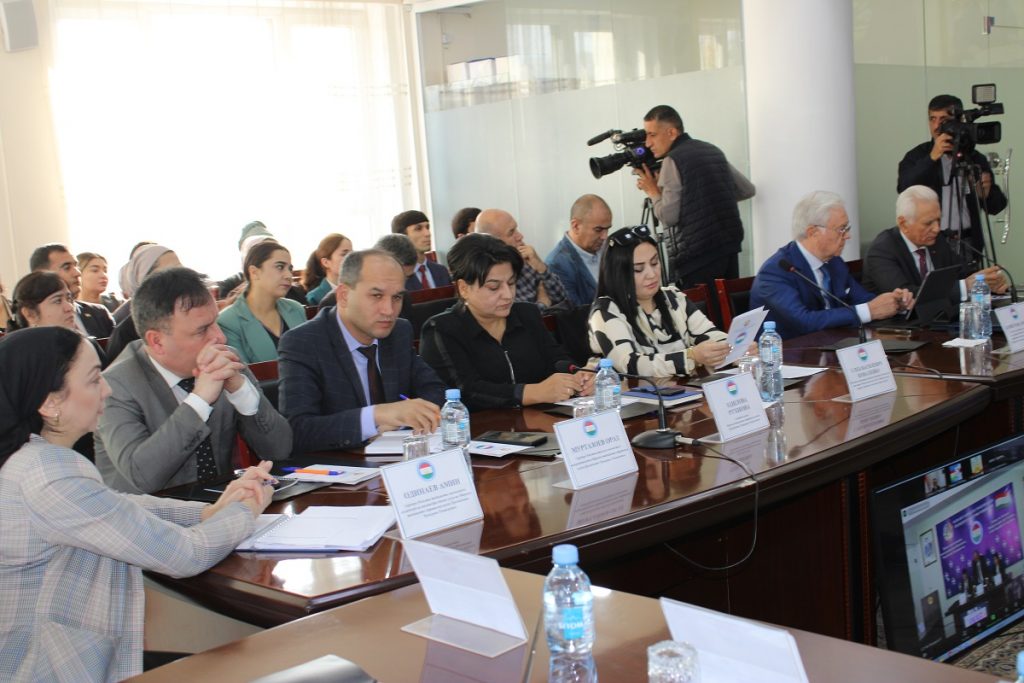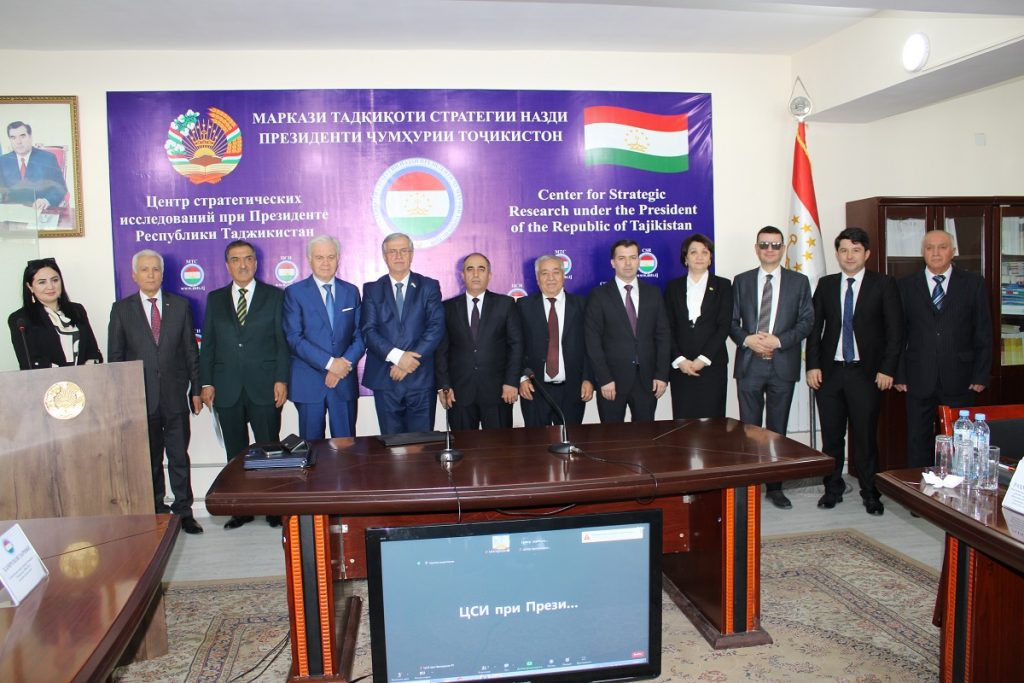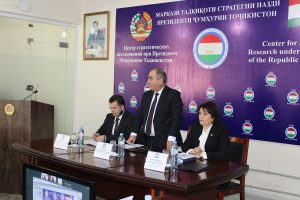 October 30, 2023 at the Center for Strategic Research under the President of the Republic of Tajikistan (CSR) in order to discuss the role, significance, achievements and detailed analysis of the political and economic aspects of integration formats (“C5+1”) in Central Asia with the participation of the USA, EU, Russia, China, Germany, South Korea, Japan, India, as well as an assessment of the new platform for dialogue between the countries of Central Asia and the Cooperation Council for the Gulf countries, a scientific and practical conference was held on the topic “Diplomatic formats C5+1 in Central Asia: achievements and prospects.”
October 30, 2023 at the Center for Strategic Research under the President of the Republic of Tajikistan (CSR) in order to discuss the role, significance, achievements and detailed analysis of the political and economic aspects of integration formats (“C5+1”) in Central Asia with the participation of the USA, EU, Russia, China, Germany, South Korea, Japan, India, as well as an assessment of the new platform for dialogue between the countries of Central Asia and the Cooperation Council for the Gulf countries, a scientific and practical conference was held on the topic “Diplomatic formats C5+1 in Central Asia: achievements and prospects.”
The conference was held in a hybrid format (online and offline)
The conference was attended by veterans of the diplomatic service, ambassadors extraordinary and plenipotentiary of Tajikistan to the considered foreign countries in question, political and governmental officials, as well as scientists and leading experts in the field of international relations.
In particular, the report was made by:
- Hamrokhan Zarifi – former Minister of Foreign Affairs of the Republic of Tajikistan (2006-2013), candidate of political sciences.
- Alimov Rashid — former Minister of Foreign Affairs of the Republic of Tajikistan (1992-1994), Secretary General of the SCO (2006-2018), doctor of political sciences.
- Erkinkhon Rakhmatullozoda – former State advisor to the President of the Republic of Tajikistan on foreign policy, former Ambassador of the Republic of Tajikistan to the Kingdom of Belgium and Permanent Representative of Tajikistan to the European Union and NATO (2016-2023), doctor of political sciences.
- Karimi Akram Muhammadrasul – Ambassador Extraordinary and Plenipotentiary of the Republic of Tajikistan to the Kingdom of Saudi Arabia (online).
- Kirom Salahiddin Amriddinzoda – Ambassador Extraordinary and Plenipotentiary of the Republic of Tajikistan to the Republic of Korea (online).
- Fattohzoda Saidmurod Samad – member of the House of Representatives (Majlisi namoyandogon), chairman of the House of representatives Committee on International affairs, public associations and information, doctor of Philosophy.
- Akbarsho Iskandarov – head of the department of political issues and international relations of the Institute of Philosophy, Political Science and Law named after. A.M. Bakhavidinov NAST, Doctor of Political Sciences.
- Komilova Khosiyat – Professor of the Department of diplomacy and international relations of the Academy of public administration under the President of the Republic of Tajikistan, doctor of political sciences.
- Gleb Vasilievich Kovalenko – deputy executive director of the Moscow state University branch in Dushanbe.
The following topics were discussed at the conference:
- “Central Asia-European Union” format: achievements, problems and prospects.
- Results of the first Summit of heads of state “China-Central Asia” and new horizons for deepening cooperation.
- Achievements of the “Central Asia-Japan” diplomatic format and new mechanisms for expanding cooperation.
- The state and prospects for the development of cooperation between the countries of Central Asia and the United States in the “C5+1” format.
- Many years of experience in cooperation between the countries of Central Asia and South Korea within the framework of the “C5+1” format and prospects for mutually beneficial partnership.
- Opportunities and potentials of the “Central Asia – Russian Federation” format and its prospects.
- “Central Asia — India format: achievements, problems and development prospects.
- The first meeting of the heads of state of “Central Asia and Germany” and prospects for the development of regional cooperation.
- New platform for dialogue between the countries of Central Asia and the Arab countries of the persian Gulf, etc.
The conference was opened with an opening speech by the Director of the CSR, doctor of philosophical science, professor Khairiddin Usmonzoda. In his speech, he noted that every year our country’s multilateral ties with other countries, influential international political organizations and financial and credit organizations are expanding and deepening.
As part of the implementation of a foreign policy based on the principle of the “open door” policy, Tajikistan managed to implement large-scale foreign policy cooperation not only in a bilateral but also in a multilateral format, an example of which is the successful cooperation in the “C5+1” format.
Director Khairiddin Usmonzoda added that the “C5+1” format allows the Central Asian countries to develop their relations with other countries on a mutually beneficial, healthy and stable basis.
It was noted that this cooperation has practical goals and opens the way to close regional interaction, including attracting investment into the economies of the countries of the region.
Continuing his speech, the director emphasized that within the framework of most “C5+1” formats, there are also forums of national research centers of these countries, and the CSR is an active participant in them.
After the opening remarks by the Director of the CSR, the main meeting of the scientific and practical conference began, moderated by the deputy director of the CSR, doctor of political sciences, professor Parviz Muhammadzoda.
After the speeches of the conference participants, the director of the CSR, Khairiddin Usmonzoda, summed up the results of the conference and thanked the participants for their active participation and meaningful presentation.
The hope was expressed that this conference and the implementation of the recommendations and proposals voiced by the participants in the future would contribute to the expansion of the country’s foreign policy within the framework of existing formats.
The conference was held in the spirit of sincerity, mutual understanding and constructive dialogue.
Press service of the CSR under the
President of the Republic of Tajikistan

